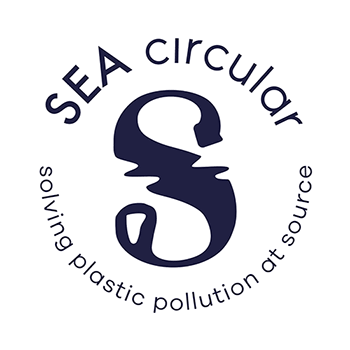
Indonesia, an archipelago of more than 17,000 islands, is believed to be the world’s second-largest contributor of plastic pollutants in the oceans, after China. Home about 267 million people, strong economic growth and an expanding middle class is driving the consumption of more and more products often containing, or wrapped in, some sort of plastic. Indonesia is currently estimated to produce more than 190,000 tons of waste each day, the majority (around 57 percent) of which is organic waste. Plastic is estimated to contribute around 25,000 tons per day to total waste, of which – at least – 20% is believed to end up in rivers and coastal waters.
Causes and challenges
Increased domestic consumption coupled with higher growth of manufacturing & service sector has led to higher waste generation in Indonesia. Due to uncollected waste and the current waste collection, transportation and disposal practices, there is extensive leakage of plastic waste in water and wastewater, ultimately leading to marine litter and plastic pollution. About 10-15% of plastic waste is recycled, 60-70% is put on final disposal sites, 15-30% leaks into rivers, lakes and the sea.
Indonesia has basic environmental policy and regulatory framework to address future requirements. Nevertheless, the lack of baseline data and technology for addressing both existing and emerging plastic waste streams is hampering its efforts towards plastic waste handling and treatment facilities are often lacking. Need for capacity building exists for choosing the most adequate technologies. Further, there is lack of skilled human resources to address emerging plastic waste streams and lack of private sector participation in plastic waste management. There has been no major initiative related to development of financial mechanism or institutional framework for developing plastic recycling industry in the country. There is a considerable lack of funding at the regulatory level, causing insufficient monitoring, controlling and enforcement of plastic waste treatment and disposal.
Ways forward
Indonesia introduced a plastic bag tax for a trial period of 3 months at selected retailers in 23 cities including Jakarta (200 rupiah / 0.01 US$ per bag) in 2016. The city of Banjarmasin introduced a ban on plastic bags in 2016, resulting in an 80% reduction in plastic bag consumption. A similar ban on the use of Styrofoam was introduced in the city of Bandung. Bogor city issued in July 2018 a plastic bag ban. The Ministry of Industry is considering the increase of biobased plastic consumption to 5% of total national plastic consumption. The current use of bioplastic in the country is less than 1% or around 3,000 t / year. The country also intends to achieve: MSW including plastic waste reduction by promoting and implementing various national regulations as the National Policy and Strategy on Solid Waste Management and plastic waste management, Government Regulation concerning Special Solid Waste Management, Promoting and implementing EPR Policy and Implementing the 10-year roadmap for EPR Implementation. The country has given its commitment to achieve SDG 14, target 14.1.
Download the SEA circular Country Profile for Indonesia for more information

